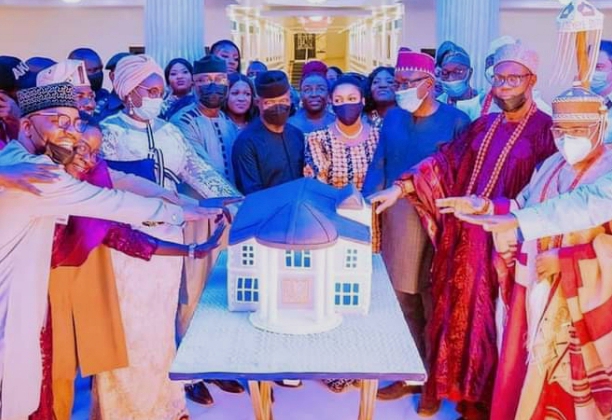THE LAGOS DEPORTATION AND THE LAW:
“It is sad to note that most Nigerians never took cognisance of the war being waged by state governments against the poor and disadvantaged citizens in the urban renewal policy until the much publicised case of the 14 beggars of Anambra State origin who were deported in Lagos and dumped in Onitsha about three weeks ago. In fact, it was the condemnation of the deportation by the Governor of Anambra State, Mr. Peter Obi that drew the attention of the elite to the unfortunate development.”
Published
11 years agoon
By
Deportation of dissidents
By Femi Falana
In 1885 the British colonial regime deported King Jaja of Opobo to a remote island in West Indies where he died in 1889.
His offence was that he had challenged the imperialist control of the coastal trade. In 1941 Comrade Michael Imoudu, President of the Nigerian Union of Railwaymen was deported from Lagos and banished to his hometown, Auchi in the Benin Province as he was considered “a potential threat to public safety.”
He only returned to Lagos in 1945 following the revocation of sections 57-63 of the General Defence Regulation, 1941 under which he had been detained. There were other nationalist agitators and labour leaders who were deported and banished to prevent them from taking part in the struggle against colonialism.
 The barbaric practice of deporting Nigerians was resuscitated by the defunct military dictatorship. In particular, the reactionary regimes of Generals Ibrahim Babangida and Sani Abacha resorted to the crude harrassment of political opponents by deportation.
The barbaric practice of deporting Nigerians was resuscitated by the defunct military dictatorship. In particular, the reactionary regimes of Generals Ibrahim Babangida and Sani Abacha resorted to the crude harrassment of political opponents by deportation.
In 1992 the late Chief Gani Fawehinmi SAN, Dr Beko Ransome -Kuti and I were deported from Lagos and detained at Kuje prison for challenging the unending military rule of the Babangida junta. The retired General Zamani Lekwot was deported from Kaduna and detained with us in the prison. The following year we were also repatriated from Lagos and banished to the same prison for leading peaceful rallies in Lagos against the criminal annulment of the June 12 presidential election. In June 1994, the winner of the presidential election, Chief MKO Abiola was deported from Lagos and detained in military custody in Kano, Borno and Abuja.
In 1995, the chairman of the Campaign for Democracy (CD), Dr. Beko Ransome-Kuti alerted the world that the secret trial of General Olusegun Obasanjo and others by a Special Military Tribunal had been concluded and that the convicts were being prepared for execution. For leaking such information to the media the human rights leader was tried in Lagos, jailed for life and deported to Katsina prison. The CD vice chairman, Shehu Sanni was arrested in Kaduna, jailed for life in Lagos and banished to Kirikiri maximum prison in Apapa. Four journalists viz: Chris Anyanwu, Kunle Ajibade, Charles Mbah and Charles Obi who were convicted for being accessories after the fact of treason i.e the 1995 phantom coup, were deported from Lagos and kept in separate prisons in the northern states.
In 1996, Chief Fawehinmi SAN was once again deported from Lagos and detained at the Bauchi prison while Femi Aborishade and I were deported from Lagos and held at the Gumel and Mawadashi prisons (in Jigawa State) respectively. Comrade Frank Kokori who was arrested in Lagos was banished to Bama prisons in Borno state for 4 years. General Obasanjo who was convicted in Lagos was deported to Yola prison. His ex-deputy, General Shehu Yaradua was deported from Kaduna, convicted in Lagos and held at various times in Kirikiri, Port Harcourt and Abakaliki prisons .
Like King Jaja both Chief Abiola and General Yar’Adua died in suspicious circumstances while they were in custody. But as deportation of colonial subjects could not be justified even under colonial rule it was carried out pursuant to special regulations. In the same vein, the military dictators engaged in deportation of citizens under the preventive detention decrees and the Prison Act.
Deportation of Poor People:
It is common knowledge that the beautification project of the Babatunde Fashola Administration has led to the deportation of hundreds of the jetsam and the flotsam from Lagos state to their states of origin.
Ban on okada
The elite and the media have been celebrating the ban on “Okada” from the major roads and the removal of traders and area boys from the streets. For understandable reasons, most of the hundreds of thousands of poor people who have been displaced and dislodged in the operation “keep Lagos clean” are of the Yoruba extraction.
In fact, on April 9,2009, when the Lagos State government deported 129 beggars of Oyo state origin and dumped them at Molete in Ibadan the Alao Akala regime alleged that the action was aimed at sabotaging his government. Just last week, some beggars of Osun State origin were also deported by the Lagos State government and dumped at Osogbo.
It is sad to note that most Nigerians never took cognisance of the war being waged by state governments against the poor and disadvantaged citizens in the urban renewal policy until the much publicised case of the 14 beggars of Anambra State origin who were deported in Lagos and dumped in Onitsha about three weeks ago. In fact, it was the condemnation of the deportation by the Governor of Anambra State, Mr. Peter Obi that drew the attention of the elite to the unfortunate development. However, in defence of its action the Lagos State Government stated that it entered into an agreement with the Anambra State Government through its liaison office in Lagos on the controversial deportation.
Although the Anambra State government has not denied the allegation that it was privy to the deportation of the 14 beggars it is on record that in Decmber 2011 the Peter Obi Administration had deported 29 beggars to their states of origin i.e Akwa Ibom and Ebonyi states. Apart from such official hypocrisy the Peter Obi regime did not deem it fit to protest when the Abia State government purged its civil service of “non-indigenes” in 2012. Many of the victims of the unjust policy who hail from Anambra State were left in the lurch.
In June 2011, the Federal Capital Territory government deported 129 beggars to their respective states of origin. In May 2013, hundreds of beggars were also removed from the streets and expelled from Abuja. Of course, it is common knowledge that the FCT authorities has continued to demolish residential houses without following due process in order to “restore the masterplan of Abuja” which was distorted through corruption and abuse of office. The majority of the victims of such illegal demolitions who are poor have been dislocated and forced out of FCT.
Last week, the Rivers State Government removed 113 Nigerians from the streets of Port Harcourt and deported them to their states of origin. The Akwa Ibom state government has just contacted its Lagos counterpart of the planned deportation of two “mad” Lagosians roaming the streets of Uyo. Many other state governments are busy deporting beggars, mad men and other destitute in the on-going beautification of state capitals. Those who are defending the Igbo beggars out of sheer ethnic irredentism should be advised to examine the socio-economic implications of the anti-people’s urbanisation policy being implemented by the federal and state governments in the overall interests of the masses.
The Illegality of Internal Deportation:
Since deportation has been resuscitated under the current political dispensation it has become pertinent to examine the legal implications of the forceful deportation of a group of citizens on account of their impecunious status. Although street trading and begging have been banned in some states, it is submitted, without any fear of contradiction, that there is no existing law in Nigeria which has empowered the federal and state governments to deport any group of Nigerian citizens to their states of origin.
Accordingly, the forceful removal of beggars from their chosen abode and repatriation to their states of origin are illegal and unconstitutional as they violate the fundamental rights of such citizens enshrined in the Constitution of the Federal Republic of Nigeria, 1999 as amended. In particular, deportation is an afront to the human rights of the beggars to dignity of their persons (Section 34), personal liberty (Section 35), freedom of movement (Section 41), and right of residence in any part of Nigeria (Section 43).
National integration
Furthermore, the deportation of beggars and other poor people by the Federal and State Governments is a repudiation of section 15 of the Constitution which has imposed a duty on the State to promote national integration. Since the political objective of the State imposes a duty on the governments to “secure full residence rights for every citizen in all parts of the Federation” it is illegal to remove poor people from the streets of state capitals without providing them with alternative accommodation. By targetting beggars and the destitute and deporting them to their states of origin the state governments involved are violating Section 42 of the Constitution which has outlawed discrimination on the basis of place of birth or state of origin.
In so far as Article 2 of the African Charter on Human and Peoples Rights (Ratification and Enforcement) Act (Cap A9) Laws of the Federation of Nigeria, 2004 has specifically banned discriminatory treatment on the ground of “social origin, fortune, birth or other status” it is indefensible to subject any group of citizens to harrassment on account of their economic status. An urban renewal policy that has provision for only the rich cannot be justified under Article 13 of the African Charter which provides that every citizen shall have equal access to the public services of the country.
In the celebrated case of the Minister of Internal Affairs v. Alhaji Shugaba Abdulraham Darma (1982) 3 N.C.L.R. 915 the Court of Appeal upheld the verdict of the Borno State High Court which had held that the deportation of the Respondent (Alhaji Shugaba) from Nigeria to Chad by the Federal Government constituted “a violation of his fundamental rights to personal liberty, privacy and freedom to move freely throughout Nigeria.” In the Director, State Security Service v. Olisa Agbakoba (1999) 3 NWLR (PT 595) 314 at 356 the Supreme Court reiterated that “It is not in dispute that the Constitution gives to the Nigerian citizen the right to move freely throughout Nigeria and to reside in any part thereof.”
Since deportation has denied the vicctims the fundamental right to move freely and reside in any state of their choice it is illegal and unconstitutional.
Fundamental human rights
It is indubitably clear that the fundamental human rights guaranteed by the Constitution and the African Charter Act are not for the exclusive preserve of the bourgeoisie but for the enjoyment of all Nigerian citizens including beggars and other economically marginalised people. To that extent no state government has the power to deport or enter into agreements to repatriate any group of citizens to their states of origin.
The Socio-economic Challenge of Deportation
It ought to be made clear to the managers of the neo-colonial state that there is no country which promotes social inequality that has successfully outlawed the poor from existence.
This explains why beggars are found in large numbers on the streets of major cities and in the ghettos of the United States of America – the bastion of capitalism. The situation is bound to be worse in the periphery of capitalism like Nigeria where the poverty rate has reached an alarming proportion due to the failure of the State to provide for the welfare and security of the people which is the primary purpose of government.
The Federal and State governments should also be made to realize at all times that beggars are Nigerian citizens who lack money, food and other basic facilities to live decent lives. The authorities should stop stigmatizing and harassing them and other citizens who have been pushed to a state of penury by the gross mismanagement of the economy by a selfish and short sighted ruling class. A nation that complaints of inadequate funds to establish a social security scheme for the majority of the people allowed a cartel of fuel importers to corner $16 billion while oil thieves stole crude oil worth $7 billion on the high seas in 2011 alone.
Yet the influential oil thieves and pirates are walking free on the streets of our state capitals without any official harassment. Others who engage in unprecedented corruption, fraud and other financial and economic crimes have never been deported to their states of origin. It is high time the government was restrained from holding the poor vicariously liable for the crisis of underdevelopment of the country. Therefore, part of the billions of naira being earmarked to build mega cities should be set aside for the rehabilitation of beggars and the destitute.
There is no doubt that Lagos state is put under severe pressure, from time to time, by millions of Nigerians who have been economically displaced in their own states of origin. But unlike its counterparts the Lagos state government has devised effective strategies to compel the rich to pay taxes through their noses. In addition the monthly statutory allocation of the state from the federation account is partly based on its population. In the circumstance, the Lagos state government should take from the rich to service the poor. As in the case of most of the “area boys” who have been productively engaged by the Fashola Administration the Lagos state government should formulate programmes for the rehabilitation and resettlement of beggars and other destitute to make them contribute to the economy of the state.
Conclusion
In his inaugural address on January 20, 1961 the United States President, Mr. J.F. Kennedy warned that “if a free society cannot help the many who are poor it cannot save the few who are rich”. About 40 years later, those cautionary words resonated in the case of Hoffman v. South African Airways (2001) CHR 329 at 354 where Justice Ngcobo of the Constitutional Court of South Africa stated that “Our Constitution protects the weak, the marginalized, the socially outcast and the victims of prejudice and stereotyping. It is only when these groups are protected that we can be secure that our own rights are protected.”
With respect to the implementation of neo-liberal policies that have continued to pauperise our people I am compelled to remind the ruling class in Nigeria of the plea made by the Late Dr. Akinola Aguda in 1985 that “our new perspective in law and justice must be such as to guarantee to each of our people food, drink, lodging, clothing, education and employment in addition to the rights guaranteed to him so far by our Constitution and our laws, so that justice may mean the same thing to everyone.”
Finally, since the deporting state governments have no immigration officials to police their borders there is no assurance that the deportees will not find their way back to where they were deported. However in view of the illegality of the deportation of poor people the governments of the federal capital territory and the respective states are advised to stop it without any further delay. If the practice is not discontinued the deporting state governments should be prepared to defend their action in Court. Sooner than later.
– FEMI FALANA, SAN is a Lagos Lawyer and human rights activist

You may like
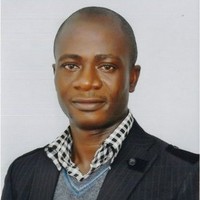
A Phenomenon at 50
Hitting the age of 50 is a landmark and a milestone to be celebrated. Fifty years and still counting, Aremo Olusiji Balogun, is a phenomenon and a case study in humanity.
He is an Associate Member, Chartered Institute of Personnel Management in Nigeria among others. He is the Founder of Ase Youth Association and several other organisations.
His company Promec Innovative Concepts was a child of necessity when his attempt to register Prince Royal Media Concept (Promec) at the Corporate Affairs Commission (CAC) met a brick wall.
Olusiji Balogun is a media guru and an organizational growth and business development expert with adaptable skills. He is able to use own initiative or work as part of a team. An efficient and effective Human Resources Manager, community worker, excellent communicator at all levels within and outside organizations; he has good problem solving and analytical skills with pioneering spirit.
Olusij’s specific interests include teaching and learning for new product development, business development, participatory social activities, keen insight into the needs of others and with high energy, initiative and focus, proven leadership skills including managing and motivating others to achieve objectives.
An effective community and social worker, he is fluent with information technology and capable of handling executive assignments and leadership. His other qualities include being positive with potential ideas, he has the ability to work with anyone under any condition or situation and contribute greatly to achieving the best goals of the establishment.
Oluwasijibomi Gideon Balogun was born on the 8th September, 1972 in Ondo town to the family of Samuel Olusegun Balogun and Mrs Grace Remilekun Balogun of Ase Akoko in Akoko North West Local Government Area of Ondo State. Both parents are retired Civil Servants. Olusiji was raised up with strong Christian virtue.
He had his early education at St. Luke’s Primary School, Akure but finished at Muslim Primary School, Ikaram Akoko, all in Ondo State, where he obtained the First School Leaving Certificate. He subsequently earned his West African Senior School Certificate in 1990 after attending Omoluorogbo Grammar School, Akure before proceeding to Ala Community Comprehensive High School, Ala-Elefosan, Idanre Local Government Area of Ondo State.
He also attended the Institute of Journalism and Nigerian Institute of Journalism, (NIJ), Akure Campus for his Diploma in Journalism and Public Relations, after a sojourn at Federal University of Technology, Akure (FUTA) briefly in the Institute of Science Laboratory Technology. He also went to Akwa-Ibom State Polytechnic, for his Higher National Diploma in Business Administration.
He later proceeded to the Ambrose Alli University, Ekpoma, Edo State for his Bachelor of Science Degree in Public Administration.
He is a Member of various professional bodies.
After leaving school, Olusiji started working as a freelance Journalist and Printer. He started Eminent Leaders Magazine in 1996 and registered Prince Royal Media Concepts with Corporate Affairs Commission (CAC), in 1999 which he upgraded to Eminent Leaders World Communications Limited publisher of Eminent Leaders magazine.
He worked with several organisations where he left indelible footprints of punctuality, hard work and professionalism. He worked with Mentors Communications, Abuja in different capacities. At Mentors Communications, he was the pioneer Editor of Rootswatch Magazine. He was Technical Assistant to the Managing Director of Quarry Managers Company in Abuja, headed by the late Abdulhakeem Amao. He was Special Event Manager with ITAD/MotMacdonald/PWC in Calabar and Water Supply and Sanitation Reform Programme (WSSRP) in Abuja. Both projects under the Integrated Water Resource Management European Commission.
He also had a stint with Hatlab Delight as a Business Development Manager and Head of Administration, O.T. Otis Engineering Limited. He resigned his appointment with Successory Nigeria Limited, Abuja, as Head of Project Management, in year 2019 to move his outfit forward.
Olusiji Balogun experience in politics is vast. His team helped installed Olusegun Agagu and Olusegun Mimiko as Ondo State Governors. He was the nucleus of Olusegun Mimiko Campaign Organisation for his second term when he was Editor of Grassroots Vanguard Newspaper of Grassroots Network.
He attempted to contest for the coveted seat of Ondo State Governor in 2020.
His experience in administration is versed as he is an Associate Member, Chartered Institute of Personnel Management (CIPM), Full Member Institute of Professional Administrators and Managers (IPMA) and many other professional bodies. He is a partner in many companies and Chief Executive Officer of Promec Innovative Entrepreneurship and Science Academy (PIESA) and several other firms.
He currently has his hand in farming as he started Ase Farms Nigeria Limited, asefarms.com.ng.
His hobby includes travelling, reading, surfing the internet and adventures.
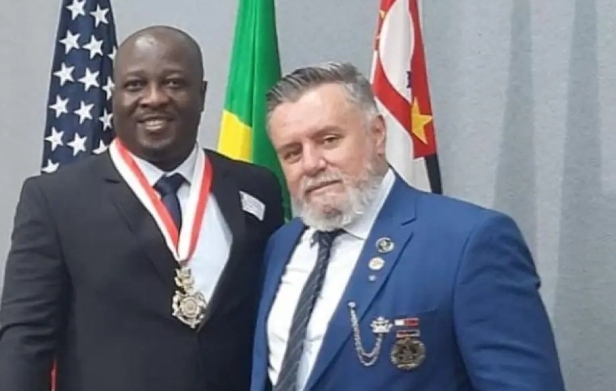
Ambassador Bayo Lawal Appointed American Diplomatic Representative in Brazil Ambassador Bayo Lawal, is truly a chip off the block. Born in Osogbo, Osun State of Nigeria, into the royal house of Olumodi Oyipiloye and Asuni Compound (Maternal) Osogbo. Bayo Lawal has become the first Nigerian to receive an American diplomatic status in Brazil. At a diplomatic ceremony held on the 17th of December, 2021 in the executive auditorium of the State Legislative Council, Saopaulo , Brazil, the American Government, through its Diplomatic Mission of International Relations (ADMIR) sworn In Ambassador Bayo Lukman Lawal as one of its appointed diplomatic representatives of the American diplomatic mission in Brazil. The humanitarian and diplomatic mission , which for the first time, included a Nigerian living in Brazil, inaugurated other important personalties in Brazil as members of its humanitarian project scheduled for Africa and Europe in the year 2022. Bayo Lawal is from a royal and polygamous house where hardwork is the hallmark. Though born by a successful business man popularly known as “Were Nise Oluwa”, Bayo Lawal has been a focused, hard-working and persevering youngman. His stint with the Osun State Board of Internal Revenue after his days at The Federal Polytechnic, Offa, set him in a progress pedestal. At the Board of Internal Revenue, his hardworking nature, made him a darling of all. Ambassador Bayo Lawal, before leaving the shores of Nigeria, originated the idea of honouring women in Nigerian society in 1999, tagged “Women Entrepreneur Merit Award” organised by Spotlight Media Ventures. He was then the PRO and Reporter for the firm. Ambassador Bayo Lawal and other personalities like the notable former Brazilian football captain, Capitão Cafu , the Saopaulo State First Lady, Mrs. Bia Doria, the Director of Federal Police, the Honorable speaker of the House of Assembly in Saopaulo , Representatives from several African and European countries witnessed the event. According to the President of the mission in Brazil, Dr. Fernando Navarro, the principal function of the American diplomatic mission of International relations is simple, it is humanitarian, it is helping to make the world a better place to live, he said the mission is to combat hunger and help the needy. Ambassador Bayo Lawal, who has lived in Brazil for over twenty years has worked in different functions in the international relations, he is an administrator who has led his team of excellent professionals within and outside Brazil. He is the presently the CEO of Mab Consulting Services, an International Trade and Business Development company with spread in the South America, Africa, China, USA, Europe and UAE. Bayo Lawal, who served as a Business Consultant at Grupo Empresarial Costa Negocios, taught courses in several English Schools in Sao Paulo, Brazil. He was Business English Teacher For Executives between 1999 – 2014. He worked at the Costa Negocios Group, FGV Projetos, Bimex Comercial Ltda., and many others. In his interview with Heritage news, Ambassador Lawal said “I am dedicating my achievements in Brazil to the Almighty God and also to my late parents, Prince Yekeen Lawal and Mrs. Bolanle Lawal. I also owe this success to my family in Brazil , my friends and colleagues who are always by me.” Ambassador Bayo Lawal said he is ready to work with all humanitarian organizations in Nigeria and overseas, using his office as an ambassador to help better the standards of every Nigerian, African immigrants in Brazil and around the world. He promised to lead projects of housing estates to Osogbo and other necessary locals in Nigeria.Ambassador Bayo Lawal is married to an Italian descendant Brazilian, Mrs. Sara Guerino Lawal and blessed with three children; Nathalie Mariam Oyenike Lawal, Derick Afeez Oyewale Lawal and Allan Khalil Babatunde Lawal.
DR TOLULOLA OLAJIBIKE BAYODE OPENS THE BIGGEST HOME FOR THE LESS PRIVILEGED IN AFRICA
Published
2 years agoon
December 28, 2021By
Iyalaje Tolulola Olajibike Bayode was born in Akure and hails from Oba-Ile. She’s the daughter of Chief Joseph Bayode and Pastor Mrs Bayode.
Tolulola Olajibike Bayode, RN, BSN, MD, is a trained medical professional but with an unusual passion for the well-being of the less privileged. Having travelled far and wide,Tolulola share an uncanny obsession of giving abandoned children and widows another shot at life,employing both her professional training and God given resources in assisting the less privileged at will leading her to initiating Dorian Home for Displaced Children & Mothers Initiative.
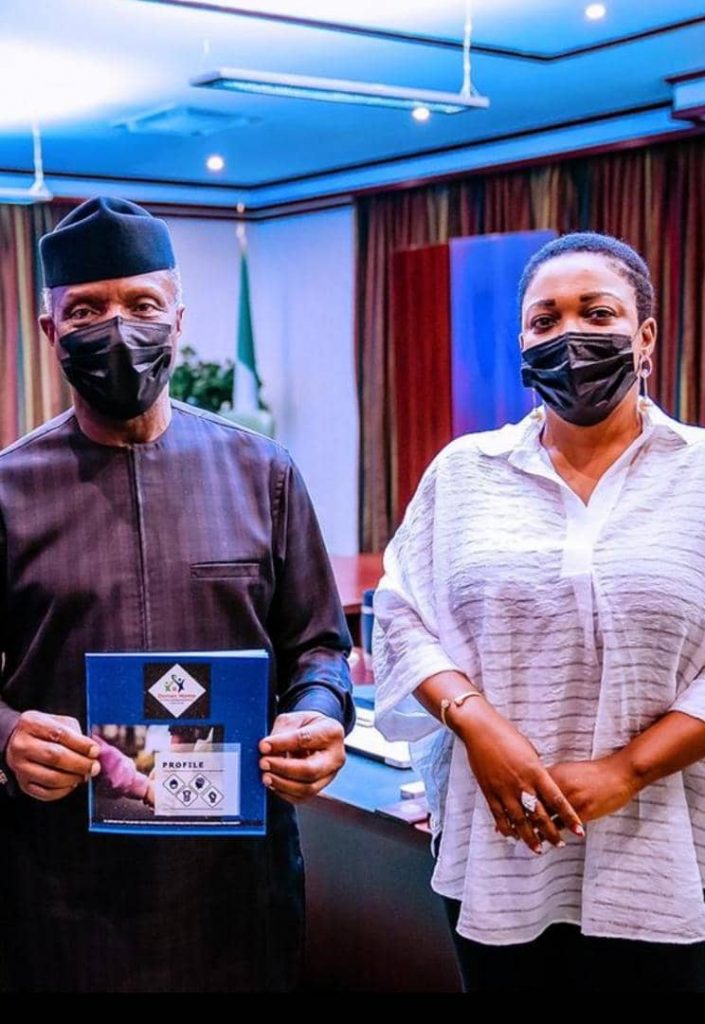
The African Union Economic, Social and Cultural Council appointed this Akure born philanthropist Dr. Tolulola Bayode as Head, Social Affairs and Health Cluster Committee. The job description entails implementing the overall goals of the Health, Humanitarian Affairs and Social Development portfolio in line with the AU Agenda 2063, Sets annual performance targets for the Health, Humanitarian Affairs and Social Development portfolio and report on annual progress to Specialized Technical Committees and AU Policy Organs.
In 2009, Dr.Bayode established Dorian Home for Charity and Social Development as a Non-governmental Organization (NGO). She’s the CEO/ President. Her personal encounter and experience in the course of discharging her professional duties, most especially in the Internally Displaced People’s (IDP) Camps, Community/Rural Medical Outreach programs, just to mention a few, afforded her a first-hand and comprehensive understanding of the plethora of unsavoury plights of women and children in our society.
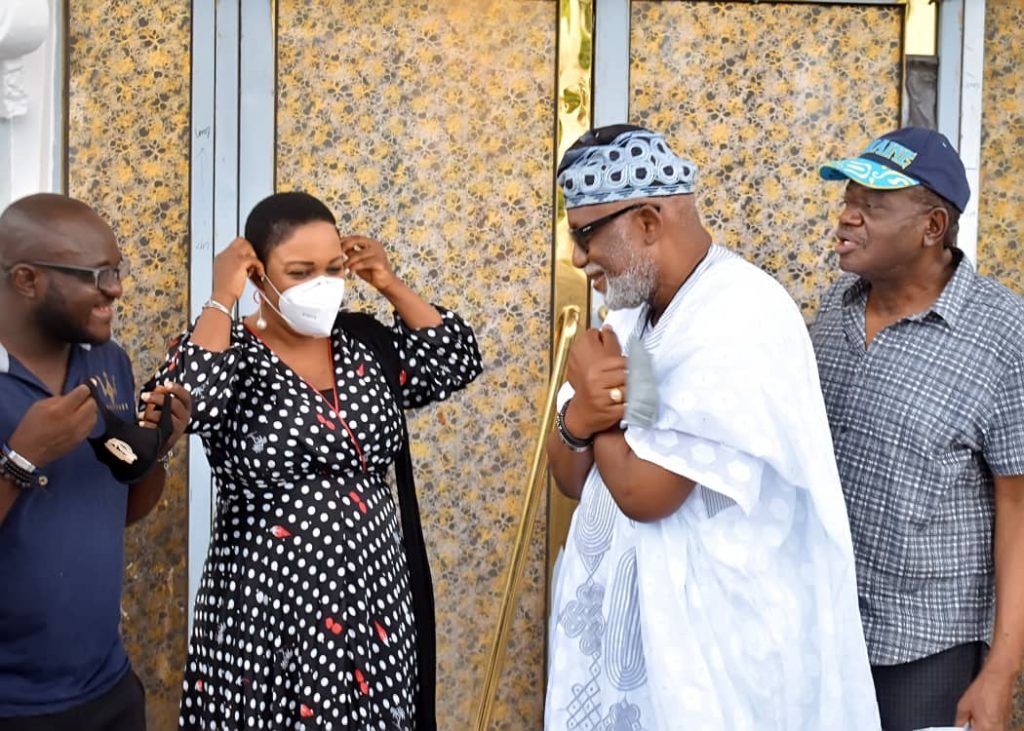
Dorian Home is the biggest orphanage home in Africa, consisting of 700 homes for children,500-capacity skill acquisition centre for women, large hall for events, modern clinic and a worship centre. Dorian Home for Charity and Social Development is situated at Akure, the Ondo State capital.
Described as the biggest orphanage home in Africa, the ultramodern facility worth $5million and was finally commissioned on the 14th of October 2021.
Dorian Home is not limited to taking care of just abandoned babies and widows but also focused on research, training, empowerment and mobilize women towards self-emancipation. A glamorous persona imbued with the philosophy of giving hope to the hopeless, creating a better living condition for the abandoned, Tolulola is in the forefront of Safe Haven Law in Nigeria – the leaving of unharmed infants with statutorily designated private persons so that the child becomes a ward of the state with proper upbringing.
At the commissioning of the home, Professor Yemi Osinbajo, the Vice-President of Nigeria, called for the provision of adequate welfare for vulnerable children and women in the society. The vice president commended Bayode for making provision of the basic needs of homeless children and women her passion. He said that about nine per cent of Nigerian children were homeless; a figure Osinbajo said seems to be growing rapidly. The vice president, however, called on well meaning Nigerians to join hands with the government to provide adequate care for the homeless children, saying that government alone could not do it. Osinbajo described the laudable project as one that would stand the test of time for the less privileged and empowerment for women in society.
During her speech, the Founder and President of Dorian Home, Dr Tolulola Bayode, said that vision of the project was about leaving a legacy of hope for the orphaned children, widows and less privileged women in the society. According to Bayode, reality dawned on her after the shocking demise of her elder brother, the purpose of man on earth is to touch life and uplift humanity. Bayode said the covenant she had with God to have the home was based on her love for humanity, widow, indigent and displaced children to live a better life. She also appealed to the government to provide adequate security checkpoints along Akure/Idanre Road, adding that the future of any child should not be toiled with. She emphasised that not that she has the resources but has a heart of giving.
Represented at the ocassion, was the governor of Ondo State represented by his Deputy, Mr Lucky Ayadatiwa, who said that the project compliment the administration’s REDEEM agenda of Arakunrin Oluwarotimi Akeredolu. He commended the Founder of the home for her initiative. Akeredolu described the project as unique because it focus on the neglected section of the society. Akeredolu said the project would receive the support and patronage of the state government. He said the state government would continue to support the social initiative programmes of the Dorian Home.
Also, speaking at the ocassion, Senator Tayo Alasoadura, the Minister of State for Niger Delta Affairs, urged people to emulate the kind gesture that counts for the good of humanity by trying to make the society a better place for humanity. Alasoadura said that Nigeria would be a better place, if everyone tried to provide a home like heaven on Earth, especially for the displaced and indigent children, just as the orphanage.
Tolulola Olajibike Bayode, as a natural social and talented care giver has continually provided training, education and health consultations in the non-profit entrepreneurial sector to youths in different parts of the world and has successfully maneuvered the delicate balance between dedication to mission in a wide range of settings. Aside her passion for the creating a better living for commoners, she has years of extensive managerial experience in the non-profit sector, with outstanding records in getting initiatives off the ground and flourishing.
Trending
-
13 years ago
ALL ABOUT GENERAL MUHAMMADU BUHARI
-
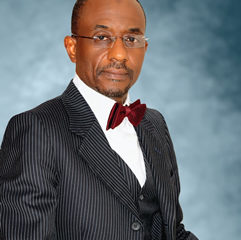
 11 years ago
11 years agoProfile of Sanusi Lamido Sanusi
-
11 years ago
Profile of Tolulola Ajibike Bayode
-
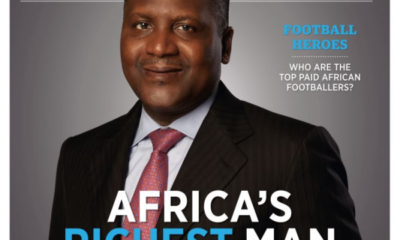
 11 years ago
11 years agoProfile of Aliko Dangote
-
13 years ago
OUTSTANDING NIGERIANS IN 2010
-
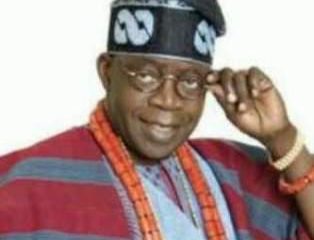
 5 years ago
5 years agoProfile of Senator Bola Ahmad Tinubu
-
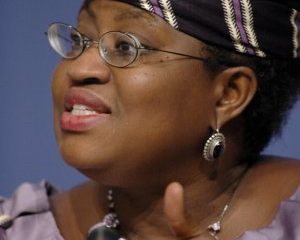
 5 years ago
5 years agoNgozi Okonjo-Iweala -Profile,about her,family and work.
-
5 years ago
20 Most Outstanding Nigerians in 2018

